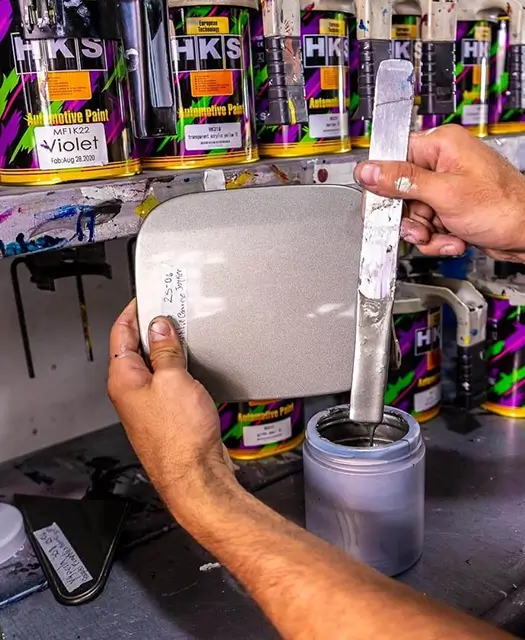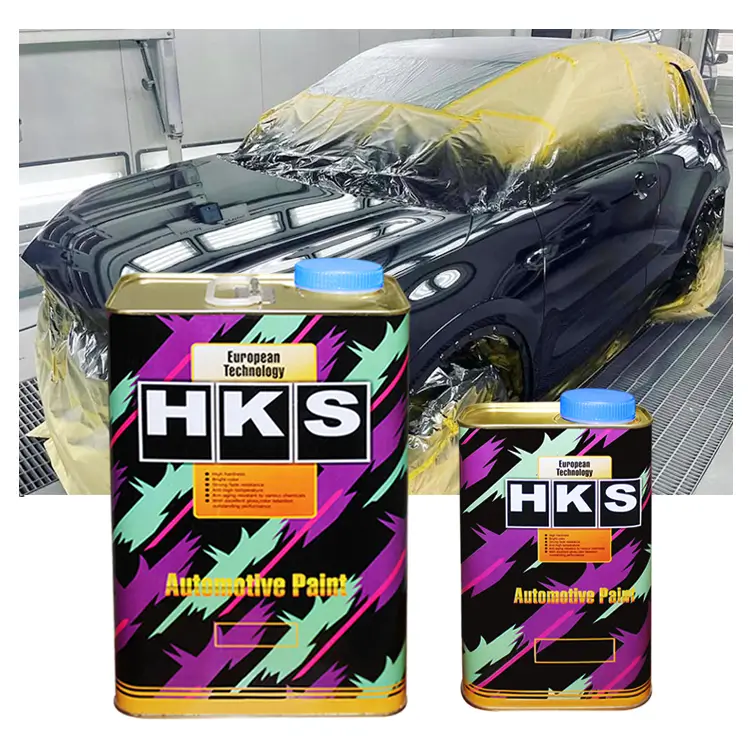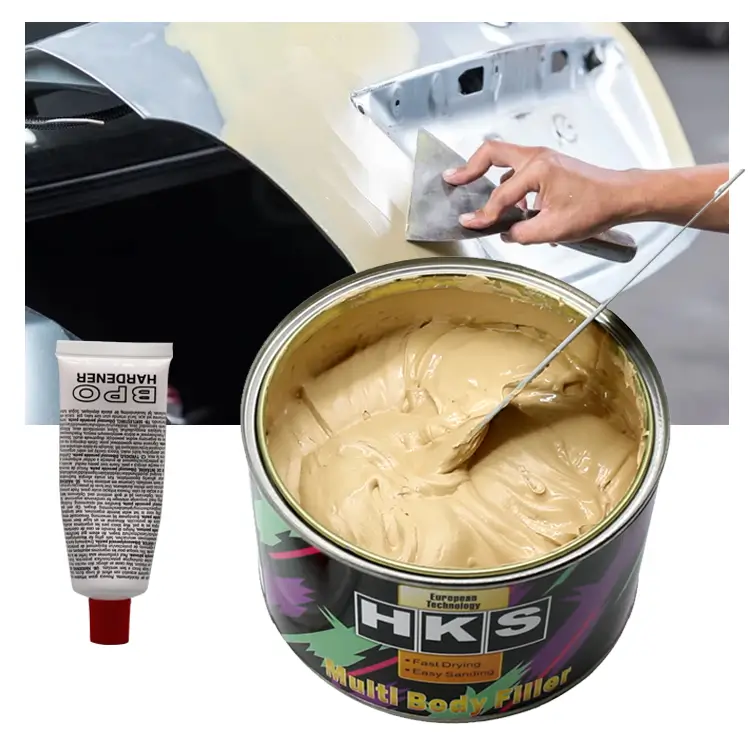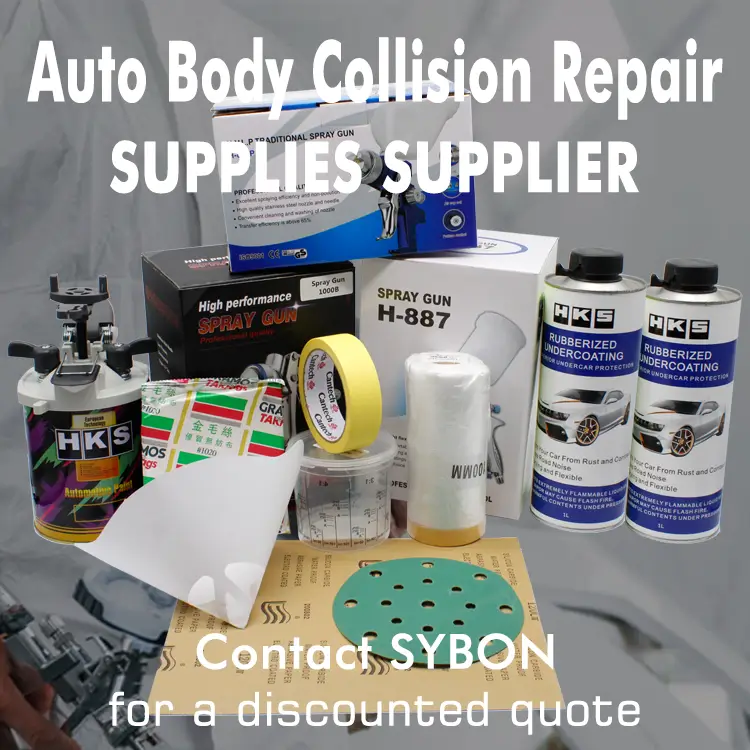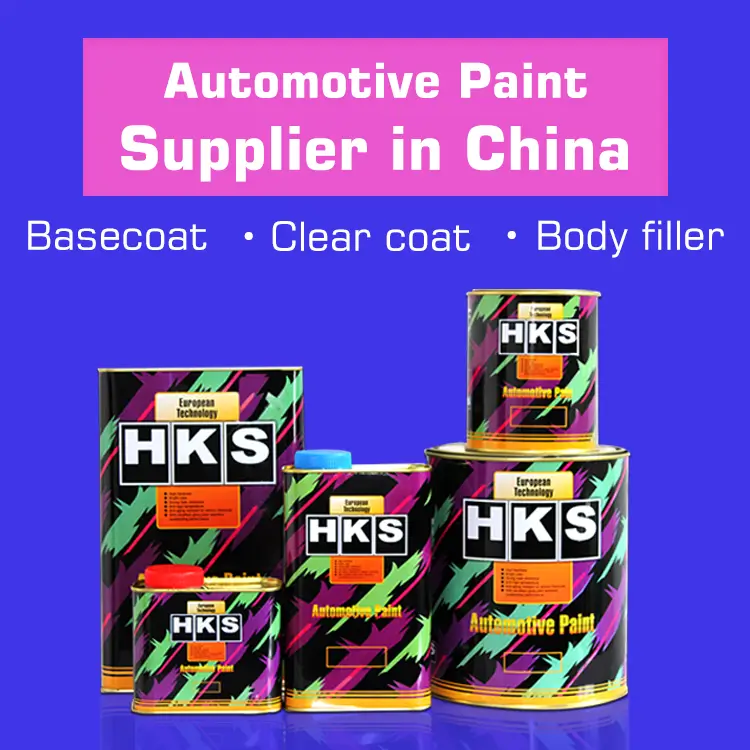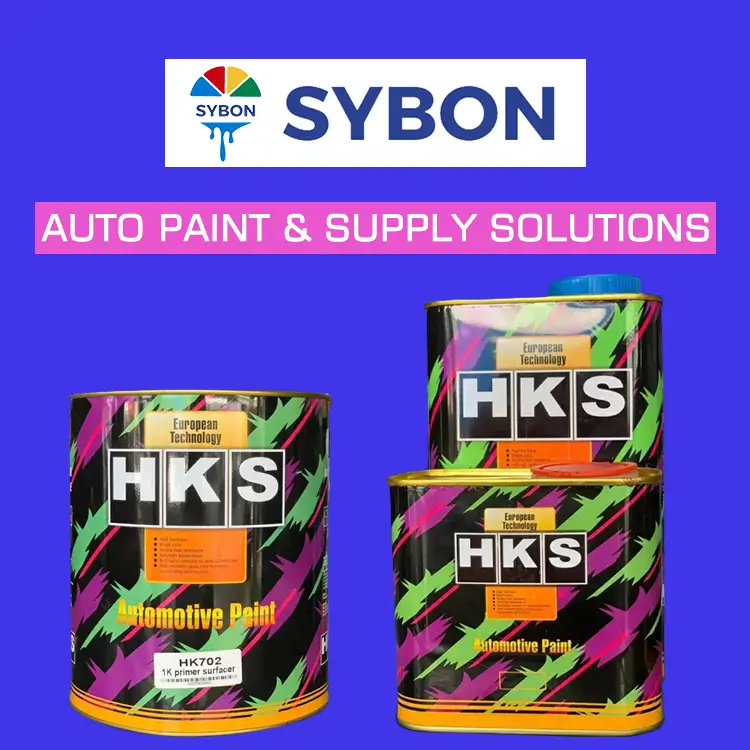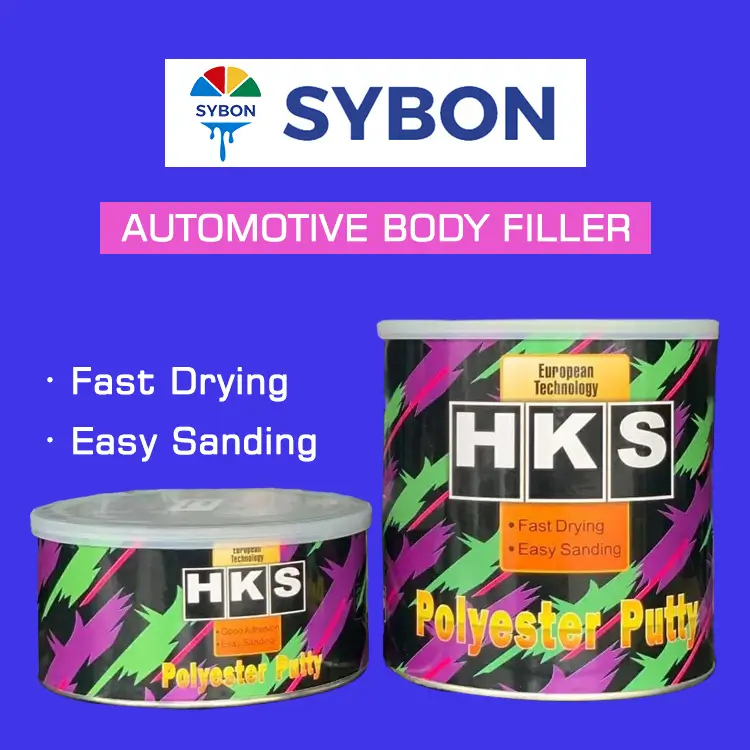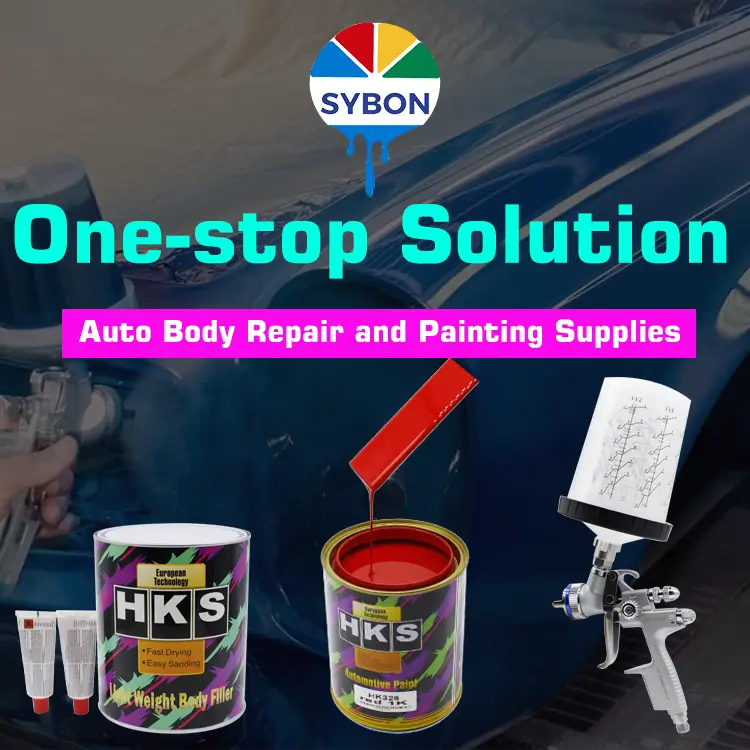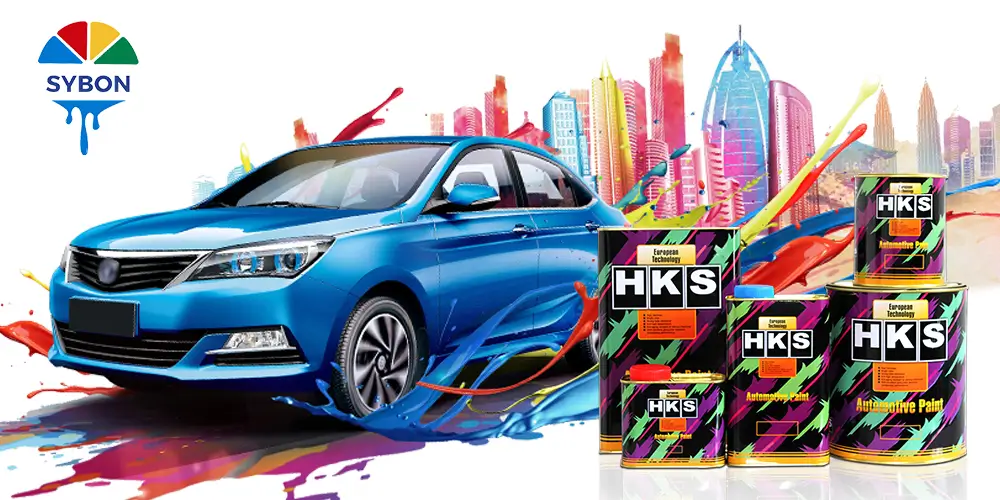Automotive Paint Supplier
Section 1: Introduction to the Automotive Paint Industry
The automotive paint industry is a dynamic and integral part of the broader automotive sector. In essence, it revolves around the production and supply of paints, coatings, and related products for vehicles. This industry caters to a diverse clientele, including import wholesalers, automotive paint shop owners, and car repair centers. Understanding the significance of high-quality automotive paint is fundamental to appreciate the importance of finding the right automotive paint supplier.
The automotive paint industry is driven by several key factors. Firstly, the automotive sector itself is enormous, with millions of vehicles being manufactured and repaired globally each year. This creates a substantial demand for automotive paint and coating solutions. Whether it's a car owner looking to give their vehicle a fresh coat of paint or an auto repair center needing to fix a damaged finish, the need for automotive paint is ever-present.
In addition, the automotive industry is continually evolving. New technologies, materials, and trends influence the types of paint and coatings used. This means that automotive paint suppliers must stay up-to-date with the latest advancements to meet the changing demands of their customers.
The automotive paint industry is also shaped by environmental concerns. With increasing awareness of the ecological impact of automotive production and maintenance, the industry is moving towards more sustainable and eco-friendly paint solutions. Suppliers need to adapt to these evolving preferences, offering products that are not only high-quality but also environmentally responsible.
In summary, the automotive paint industry is a critical sector within the larger automotive field. It serves the needs of a diverse clientele, ranging from car enthusiasts to professional automotive repair centers. The industry is characterized by constant change, with new technologies and environmental considerations shaping the products available. Therefore, finding the right automotive paint supplier is essential for anyone operating in this space, as the quality of the paint directly impacts the appearance and durability of the vehicles it is applied to.
Section 2: Importance of Finding the Right Automotive Paint Supplier
The importance of finding the right automotive paint supplier cannot be overstated. When it comes to automotive refinishing, the quality of the paint used is a decisive factor in determining the final result. Whether you are a business involved in auto body repair, a professional paint shop, or even a car enthusiast, the choice of your automotive paint supplier can make or break your project's success.
Quality and Durability: High-quality automotive paint not only enhances the aesthetics of a vehicle but also provides robust protection against various environmental factors. UV rays, chemicals, weathering, and everyday wear and tear can take a toll on a vehicle's paint job. The right automotive paint supplier will offer products that are not only visually appealing but also durable, ensuring that the paint retains its shine and integrity over time.
Customer Satisfaction: Customer satisfaction is paramount in any business. When you use top-quality automotive paint from a reputable supplier, your customers will notice the difference. A well-done paint job enhances the overall value and appearance of a vehicle, leaving your customers satisfied and more likely to recommend your services.
Efficiency and Productivity: High-quality paint products from a reliable supplier can also enhance your efficiency and productivity. Such products are designed for ease of use and consistency, allowing you to complete paint jobs efficiently and with fewer complications. This, in turn, leads to more satisfied customers and higher profitability.
Reputation and Trust: Your reputation as a business or professional in the automotive paint industry is closely tied to the products you use. Partnering with a reputable automotive paint supplier helps you build trust with your customers. They will have confidence in your ability to deliver exceptional results, knowing that you use the best materials available.
Compliance and Safety: Reputable automotive paint suppliers adhere to industry standards and regulations, ensuring that their products are safe and compliant with environmental and safety guidelines. This is not only good for your business but also for the environment and the well-being of those working with the paint products.
In conclusion, finding the right automotive paint supplier is a crucial decision with far-reaching implications for your business or projects. The importance of using high-quality, durable, and reliable automotive paint cannot be overstated, as it directly influences customer satisfaction, efficiency, reputation, and compliance with industry standards. Making the right choice in selecting an automotive paint supplier is an investment in the success of your automotive-related endeavors.
Section 3: Factors to Consider When Choosing an Automotive Paint Supplier
Selecting the ideal automotive paint supplier is a complex decision that requires a thoughtful evaluation of multiple factors. The following considerations will help you make an informed choice:
Reputation and Track Record: A supplier's reputation is paramount. Look for a supplier with a proven track record of reliability, quality, and customer satisfaction. Seek feedback from industry peers and customers to gauge their reputation accurately.
Product Range: A comprehensive product range is essential. A reliable supplier should offer a wide variety of automotive paint and coating products, including car paint, clear coat, body fillers, additives, and more. A diverse range ensures you have access to everything needed for successful automotive refinish projects.
Quality Standards: Verify that the supplier adheres to stringent quality standards and industry regulations. Compliance ensures that the products meet safety and performance requirements, which is essential for the longevity of the paint job and the safety of the users.
Pricing and Affordability: While cost should not be the sole factor, it's essential to consider your budget constraints. Compare prices among potential suppliers and look for a balance between affordability and product quality. Negotiating with suppliers can often lead to favorable pricing terms.
Customer Support and Technical Assistance: Exceptional customer service and technical support can be invaluable. A supplier that offers guidance, assistance, and expertise can help you address any challenges that arise during your automotive paint projects.
Environmental Responsibility: As environmental awareness grows, more customers prefer eco-friendly paint options. Evaluate whether the supplier offers sustainable or low-VOC (volatile organic compounds) paint solutions, aligning with current ecological trends.
Consistency: Reliability in terms of product availability and delivery schedules is crucial. A dependable supplier ensures you have a consistent source of materials for your projects, reducing downtime and delays.
Innovative Products: In a constantly evolving industry, innovative products can give you a competitive edge. Look for a supplier that introduces new, cutting-edge automotive paint products to stay ahead of industry trends.
Local or International Supplier: Consider whether you want a local or international supplier. Local suppliers might provide quicker access to products, but international suppliers could offer unique product ranges and competitive pricing.
References and Testimonials: Ask for references and seek testimonials from other clients who have worked with the supplier. Real-world experiences can provide valuable insights into the supplier's performance and reliability.
Samples and Testing: Many reputable suppliers offer samples for you to test their products. This can be an effective way to assess the quality and performance of the paint before making a larger commitment.
In conclusion, selecting the right automotive paint supplier is a decision that requires thorough consideration of various factors. The reputation, product range, quality standards, pricing, customer support, and adherence to environmental responsibilities all play a vital role in your decision-making process. Careful evaluation will lead you to a supplier that meets your specific needs and helps you deliver outstanding results in the automotive paint business.
Section 4: Researching and Evaluating Potential Suppliers
Researching and evaluating potential automotive paint suppliers is a crucial step in ensuring the success of your business or automotive paint projects. Here's how you can effectively go about this process:
Online Research: Start with online research. Explore the websites of potential suppliers to gain an initial understanding of their product offerings, pricing, and any unique selling points they may have. This will help you create a shortlist of suppliers to further investigate.
Check Reviews and Testimonials: Look for reviews and testimonials from other customers who have worked with the suppliers you're considering. This firsthand feedback can provide valuable insights into the supplier's reliability, product quality, and customer service.
Industry Networks and Associations: Reach out to industry networks and associations. They often have information on trusted suppliers and can provide recommendations based on your specific needs. Networking with peers in the industry can also lead to valuable supplier referrals.
Request Samples: Request samples of the automotive paint products you're interested in. This allows you to test the quality, color accuracy, and ease of application firsthand. It's also an opportunity to evaluate the supplier's willingness to provide samples, which can be indicative of their customer-centric approach.
Visit the Supplier: If feasible, consider visiting the supplier's facilities. This provides a firsthand look at their operations, quality control processes, and the conditions under which their products are manufactured and stored.
Ask for References: Don't hesitate to ask potential suppliers for references from their existing clients. Reach out to these references to get a better understanding of their experiences working with the supplier.
Evaluate Product Certification: Check if the supplier's products have industry certifications. Certifications often indicate that the products meet specific quality and safety standards.
Discuss Technical Support: Engage in a discussion about the technical support the supplier offers. Ensure that they have a team of experts who can provide assistance and guidance when you encounter challenges or have technical questions.
Consider Long-Term Partnerships: Think about the potential for a long-term partnership with the supplier. Building a strong and lasting relationship with a supplier can lead to benefits such as customized product solutions, better pricing, and priority access to new products.
Negotiate Terms: Negotiate terms and pricing with the supplier. An open dialogue about your expectations and budget constraints can help you reach a mutually beneficial agreement.
Check for Compliance: Confirm that the supplier complies with industry regulations and safety standards. This is especially important for maintaining the safety of your employees and the quality of your work.
Assess Responsiveness: Pay attention to how responsive the supplier is to your inquiries and requests. A responsive supplier is more likely to provide efficient customer support.
In summary, researching and evaluating potential automotive paint suppliers is a comprehensive process that involves online research, checking reviews, seeking recommendations, requesting samples, visiting facilities (if possible), and engaging in open discussions about terms and expectations. The goal is to make an informed decision that aligns with your specific needs and values, ultimately leading to a successful partnership with your chosen supplier.
Section 5: Understanding the Different Types of Automotive Paint Products
The automotive paint industry offers a diverse range of products tailored to various needs and preferences. Understanding the different types of automotive paint products is essential for making informed decisions when selecting a supplier.
Car Paint: Car paint is the primary coating that provides color and finish to a vehicle. It's available in various formulations, including solvent-based, water-based, and UV-cured paints. Suppliers should offer a wide array of color options to match different vehicle models and customer preferences.
Clear Coat: Clear coat is a transparent layer applied over the base coat to provide gloss, protection, and durability. High-quality clear coats are essential for achieving a brilliant and long-lasting finish. Look for suppliers that offer clear coats with excellent resistance to UV rays, chemicals, and weathering.
Body Fillers: Body fillers are used to repair dents, dings, and imperfections in a vehicle's body. A reliable supplier should provide a range of body fillers, such as light-weight body filler, high-temperature polyester putty, and glass fiber polyester putty, each tailored to specific repair needs.
Additives: Additives are chemical products used to modify or enhance the performance of automotive paints. These can include 1K and 2K binders, reducers, anti-fisheye agents, softeners, matte agents, and more. A comprehensive supplier will offer a variety of additives to address specific challenges and improve paint application.
Primer Surfacer: Primer surfacers are applied to create a smooth and uniform surface before the paint application. Different types of primers, such as 1K primer surfacers, serve various purposes, such as adhesion promotion and filling imperfections. Your supplier should offer options to suit your specific needs.
Different Color Categories: Automotive paint comes in various color categories, including 2K autocryl colors, 1K autobase colors, 1K silver colors, 1K pearl colors, and 1K crystal pearl colors. The choice of color category depends on the desired finish and the vehicle's original color.
Specialty Paints: Some suppliers offer specialty paints for unique applications, such as high-heat paints for exhaust systems or chrome-effect paints for custom detailing. These specialized products can set your automotive projects apart and are worth considering.
Environmentally Friendly Paints: With growing environmental concerns, eco-friendly or low-VOC (volatile organic compounds) paints are becoming increasingly popular. A responsible supplier should provide options that align with these environmental trends.
Understanding the various types of automotive paint products is crucial because your choice of supplier should be able to offer a comprehensive range of these products. This ensures that you have access to all the materials required to complete automotive refinish projects successfully, from repairing imperfections to achieving a flawless and long-lasting finish.
When evaluating potential suppliers, assess their product portfolio to determine whether they offer a diverse and up-to-date selection of automotive paint products, including those that meet environmental standards. This way, you can meet the unique needs of your customers and stay competitive in the automotive paint business.
Section 6: Evaluating the Quality of Automotive Paint Products
Evaluating the quality of automotive paint products is of utmost importance when choosing a supplier. High-quality paint ensures that your automotive projects meet or exceed industry standards, leading to customer satisfaction and the success of your business. Here's how to assess the quality of automotive paint products:
Color Accuracy: Quality automotive paint should provide precise color accuracy. This means that the paint should match the intended color without any deviations. Look for suppliers that are known for their ability to deliver consistent and accurate color matches.
Durability and Longevity: The durability of the paint is vital. High-quality automotive paint should be resistant to fading, chipping, and damage from environmental factors such as UV rays, chemicals, and weathering. Check if the supplier's products are renowned for their longevity.
Flawless Finish: A quality paint product should result in a flawless finish. It should dry smoothly, without imperfections like runs, sags, or orange peel. Examining finished projects or requesting sample applications can help assess the finish quality.
Adhesion: Paint products should adhere well to the vehicle's surface. Proper adhesion ensures that the paint stays in place and doesn't peel or chip easily. The supplier's products should offer strong adhesion to various substrates.
Resistance to Environmental Factors: Consider the resistance of the paint to environmental factors. High-quality paint should withstand UV rays, chemicals, and harsh weather conditions without losing its color or integrity.
Application Consistency: The consistency of application is crucial. The paint should be easy to apply, whether by brush, spray gun, or other methods. Quality paint products should provide consistent results without variations in texture or color.
Safety and Compliance: Ensure that the supplier's paint products meet safety and environmental compliance standards. Non-compliance can have legal consequences and environmental repercussions. Responsible suppliers adhere to regulations and provide products that are safe for users and the environment.
Drying Time: The drying time of the paint can affect efficiency in your automotive paint projects. Quality paint products should dry within a reasonable time frame to allow for efficient work without extended waiting periods.
Scratch Resistance: Evaluate the scratch resistance of the paint. High-quality paint should be able to resist minor scratches and scuffs, maintaining the integrity of the finish.
Finish Clarity: If clear coat is part of your project, assess the clarity and gloss of the finish. The clarity should be excellent, and the gloss should be consistent and long-lasting.
Consistency Across Batches: Consistency across different batches of paint is crucial. Quality suppliers ensure that their products maintain consistent quality from one batch to the next.
To assess these aspects, consider requesting sample products from potential suppliers. Applying and testing these samples can provide a real-world understanding of the product's quality. Additionally, engage in discussions with industry peers and seek their experiences with the supplier's products. Finally, ensure that the supplier can provide detailed information about the specifications, properties, and testing results of their paint products.
By thoroughly evaluating the quality of automotive paint products, you can select a supplier that consistently delivers top-tier products, enhancing your reputation and ensuring the satisfaction of your customers.
Section 7: Comparing Prices and Negotiating with Suppliers
Price is a critical factor when choosing an automotive paint supplier, but it should not be the sole determining factor. A balance between cost and quality is essential. Here's how to effectively compare prices and negotiate with suppliers:
Price Comparison: Obtain price quotes from multiple potential suppliers. This will give you an initial understanding of the price range for the products you need. Pay attention to variations in pricing among different suppliers.
Volume Discounts: Inquire about volume discounts. If you anticipate purchasing a significant quantity of paint products, suppliers may offer price reductions or bulk purchase incentives. Understanding the tiered pricing structure can help you make cost-effective decisions.
Payment Terms: Discuss payment terms with the suppliers. Understand their payment policies, including upfront payments, credit terms, and payment methods. Negotiate terms that align with your business's financial capabilities.
Sample Costs: If you requested sample products, check if there are additional costs associated with these samples. Some suppliers may provide samples free of charge, while others may charge a nominal fee.
Shipping and Handling: Consider shipping and handling costs. These costs can vary significantly, especially when dealing with international suppliers. Evaluate the overall cost, including transportation, to ensure it fits your budget.
Quality Assurance: Suppliers who are confident in the quality of their products may offer guarantees or warranties. Investigate whether the supplier offers any quality assurance measures, which can add value to the overall package.
Negotiation: Engage in negotiations with the supplier. While price negotiations are common, also discuss other terms, such as delivery schedules and minimum order quantities. Negotiation can help you secure a better deal and ensure both parties are on the same page.
Total Cost of Ownership: Consider the total cost of ownership. This includes not only the initial purchase price but also factors like the durability and longevity of the paint products. A slightly higher upfront cost may be justified if the products have a longer lifespan.
Long-Term Partnerships: Suppliers often appreciate long-term partnerships. Discuss the potential for a long-term business relationship, which can lead to more favorable pricing and support.
Competitive Analysis: Compare the overall value offered by different suppliers. While one supplier may have a lower upfront price, another might offer additional benefits, such as exceptional customer service, technical support, or faster delivery.
Budget Constraints: Evaluate your budget constraints and priorities. Determine where you are willing to allocate more budget based on the importance of specific products or services.
Remember that the goal is not just to secure the lowest price but to find a supplier that offers a competitive price while maintaining the quality and reliability of their products. A cost-effective supplier should align with your financial needs and provide value beyond the initial purchase price.
In the end, the most effective negotiations often result from open and transparent communication with the supplier. Be clear about your expectations, your budget, and the value you seek in a supplier. Successful negotiations can lead to a partnership that benefits both your business and the supplier, ultimately contributing to the success of your automotive paint endeavors.
Section 8: Evaluating the Supplier's Customer Service and Support
Excellent customer service and support from your automotive paint supplier are crucial for a successful and smooth business relationship. When evaluating potential suppliers, consider the following aspects related to customer service and support:
Responsiveness: One of the most critical factors is how responsive the supplier is to your inquiries and requests. A supplier that promptly addresses your questions, concerns, and orders is more likely to provide efficient and reliable service.
Technical Assistance: Technical support is essential, especially when challenges or questions arise during automotive paint projects. A good supplier should have a team of experts who can provide guidance and solutions to technical issues.
Order Tracking and Transparency: Evaluate the supplier's order tracking system. Transparent and efficient tracking allows you to monitor the status of your orders, ensuring you receive products on time. A supplier with a user-friendly order tracking system can enhance your business efficiency.
Delivery Reliability: Timely delivery of paint products is critical to maintaining your project schedules. Suppliers should have a track record of reliable and on-time deliveries, minimizing disruptions to your workflow.
Flexible Ordering Options: Consider whether the supplier offers flexible ordering options. Can you place orders online, over the phone, or through other convenient channels? This flexibility can make the procurement process more efficient.
Training and Education: Some suppliers may offer training and educational resources to assist you in using their products effectively. Such resources can be valuable, particularly for those new to the automotive paint industry.
Accessibility: Evaluate the accessibility of the supplier's customer service team. Ensure they are reachable through multiple channels, including phone, email, and potentially live chat for quick responses.
User Feedback and Reviews: Research user feedback and reviews to gauge the supplier's reputation for customer service. Positive reviews and testimonials can be a good indicator of customer satisfaction.
Customized Solutions: Depending on your specific needs, discuss whether the supplier can offer customized solutions or products tailored to your requirements. This can be a significant advantage in certain cases.
When assessing customer service and support, remember that your supplier should be more than just a source of products. They should be a partner in your business success, helping you overcome challenges and achieve your goals. A supplier that prioritizes customer satisfaction and demonstrates a commitment to providing excellent service is likely to be a valuable asset to your business.
Section 9: Choosing a Reliable and Reputable Automotive Paint Supplier
After conducting comprehensive research, evaluating products and services, comparing prices, and assessing customer support, it's time to make the critical decision of choosing a reliable and reputable automotive paint supplier. Here are some final considerations to help you make that choice:
Trust Your Gut: Trust your instincts and impressions of the supplier. Sometimes, a personal connection and a feeling of trustworthiness can be as important as the technical details.
Reputation and Track Record: Choose a supplier with a solid reputation and a proven track record of reliability. Consider their longevity in the industry and their history of serving satisfied customers.
Product Quality: Ensure that the supplier consistently delivers high-quality automotive paint products that meet or exceed industry standards.
Customer Service: The supplier should have a customer-centric approach, offering responsive customer service, technical support, and assistance when needed.
Competitive Pricing: While cost isn't the only factor, the supplier's pricing should be competitive and offer good value for the quality of products and services provided.
Transparency and Honesty: Select a supplier known for transparency and honesty in their business dealings. This builds trust and contributes to a successful partnership.
Compliance and Certifications: Verify that the supplier's products meet industry safety and environmental standards. Compliance and certifications are crucial for the integrity and safety of your projects.
Long-Term Partnerships: Consider the potential for a long-term partnership with the supplier. A strong and lasting relationship can lead to benefits such as customized solutions and favorable pricing.
Communication Skills: Effective communication is key. Choose a supplier that communicates clearly and proactively, keeping you informed about orders, deliveries, and any issues that may arise.
Consistency: A reliable supplier maintains consistent quality across their product lines, batches, and over time. You can trust that what you receive matches your expectations.
Responsive to Feedback: A supplier that listens to and acts on feedback is more likely to adapt to your specific needs and preferences, ensuring customer satisfaction.
Value Beyond Price: Consider the overall value the supplier provides. A higher price may be justified by superior quality, customer support, and additional benefits.
In conclusion, choosing a reliable and reputable automotive paint supplier is a significant decision with far-reaching implications for your business or projects. The supplier you select should be more than just a source of products; they should be a trusted partner in your automotive paint endeavors. Make your decision with confidence, knowing that the supplier aligns with your needs, values, and long-term goals. A strong supplier relationship can contribute to the success and growth of your automotive paint business.
Section 10: Conclusion and Final Tips for Success in the Car Paint Business
In the competitive world of the car paint business, your choice of an automotive paint supplier can make all the difference. By selecting the right supplier, you can ensure that your projects are characterized by high-quality results, customer satisfaction, and business success. Here are some final tips and considerations to keep in mind as you embark on your journey in the car paint business:
Continual Learning: The automotive industry is ever-evolving, with new technologies, materials, and trends. Stay committed to learning and keeping up with the latest advancements to remain competitive.
Networking: Building a network of industry peers and suppliers can provide valuable insights and opportunities. Attend trade shows, join industry associations, and engage in networking events to expand your connections.
Customer Focus: Always prioritize customer satisfaction. Happy customers are more likely to return and refer your services to others. Quality work and excellent customer service are key to success.
Invest in Tools and Equipment: High-quality paint products are essential, but so are the tools and equipment you use. Invest in state-of-the-art tools and equipment to achieve professional-grade results.
Safety and Compliance: Stay up-to-date with safety and environmental regulations. Compliance with industry standards not only safeguards your business but also reflects positively on your commitment to ethical practices.
Marketing and Branding: Invest in marketing and branding efforts to create a strong and recognizable presence in your market. Effective branding can help set you apart from the competition.
Customization: Be open to offering customized solutions to meet the unique needs of your customers. Tailoring your services to specific requirements can be a significant competitive advantage.
Feedback and Improvement: Encourage feedback from customers and be open to making improvements. Continuous feedback and adjustments can help you refine your services and grow your business.
Stay Adaptable: The automotive paint industry can be influenced by economic shifts, environmental concerns, and technology changes. Being adaptable and open to change can help you stay ahead of the curve.
Plan for Growth: As your business expands, plan for growth carefully. Scaling up your operations, adding new services, and reaching wider markets should be part of your long-term strategy.
Choosing the right automotive paint supplier is just one piece of the puzzle. The car paint business requires dedication, commitment, and a customer-focused approach. By adhering to industry standards, staying innovative, and building strong supplier relationships, you can set the foundation for a successful and prosperous journey in the car paint business.
Remember that every decision, from the choice of paint products to the way you interact with customers, contributes to your reputation and long-term success in this dynamic industry. Your dedication to quality and excellence will not only satisfy customers but also help you achieve your goals in the car paint business.
Source of this article:https://www.supersybon.com
Get to know us through more channels:

